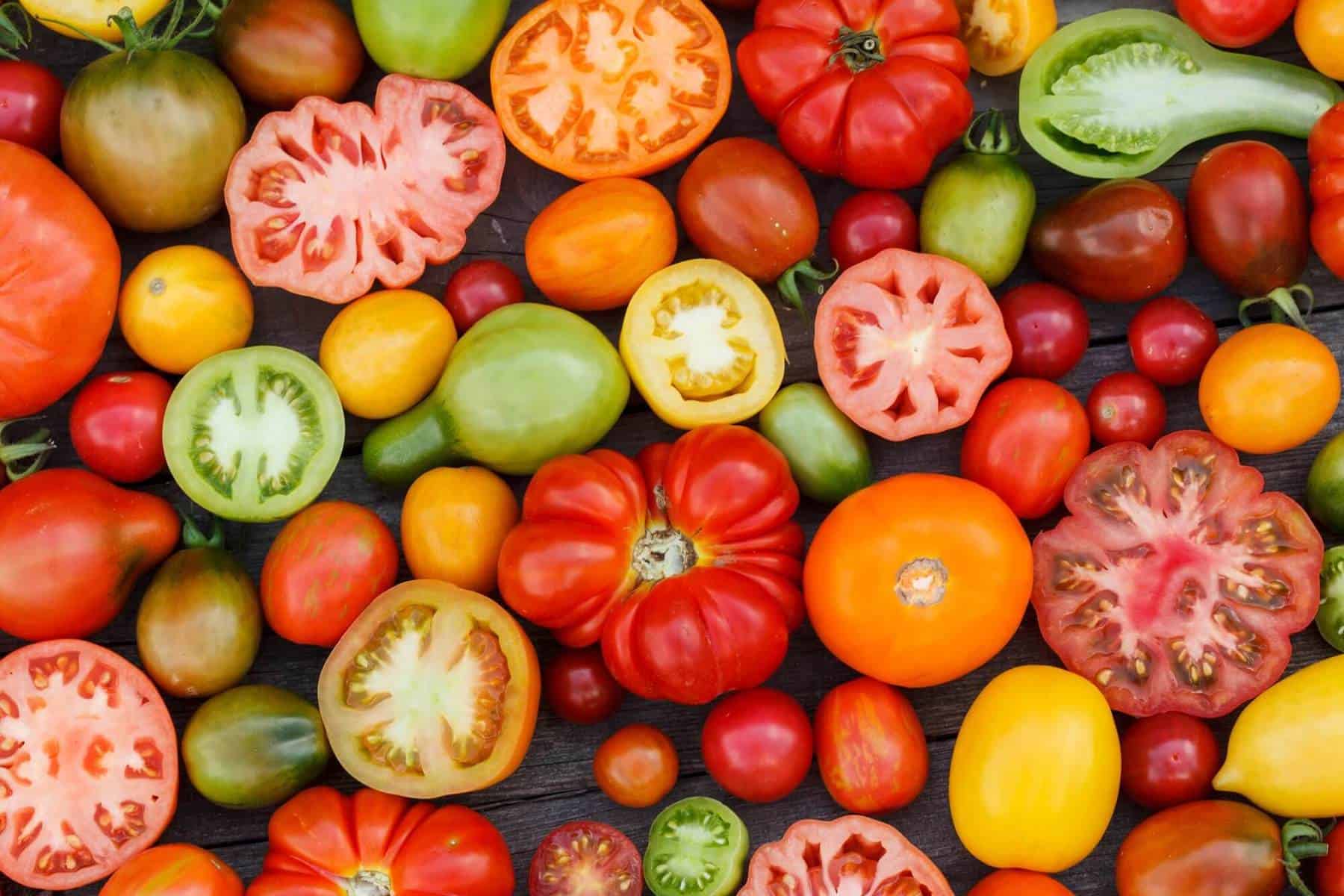
So many of us suffer from diabetes, a serious disease that affects how your body uses blood sugar (glucose). Glucose is extremely important for your body because it’s a vital source of energy for muscle and tissue cells. However, those with diabetes produce too much glucose, which can be dangerous. But as long as you take care of yourself, you can continue to live a healthy life. Here are 25 natural remedies to help with the effects of diabetes.
1. Exercise Daily
One of the best and easiest ways to improve your physical well-being (whether you have diabetes or not) is regular exercise. There are many benefits that come from exercise, including toning up your heart and muscles, strengthening bones, lowering blood pressure, raising good cholesterol and lowering bad cholesterol, and managing weight. In addition to all these benefits, physical fitness can improve the use of glucose and insulin in our bodies for those of us who have diabetes. Here is an article to explain how you can control your diabetes with regular exercise.
2. Peanut Butter for Protein
Diabetes can cause you to experience episodes of low blood sugar from time to time. After these episodes, it’s a good idea to follow up with a snack filled with protein and carbohydrates. Spreading peanut butter on some crackers offers both and supplies you with a tasty treat if you’re still feeling a little jittery. Just be cautious and avoid brands with added sugar, glucose, or jelly.
3. Soak in Salt
An annoying side effect of diabetes is having dry, itchy skin. Although you should avoid consuming foods containing salts, soaking in a tub of salt water is actually a great itchy skin reliever. Simply add one cup of salt to your bathwater, and the solution will begin to soften your skin and relax your body. The salt also works as a good exfoliate; just massage it onto wet skin and the salt will invigorate the skin and soften dry areas. This helps with circulation, so it’s a good idea to do this right away in the morning or before any physical exertion.
4. Use a Fork
Sauces and dressings contain many added sugars, so to help limit sugar intake, as well as fat and cholesterol, have your dressing or sauce on the side instead of dumping it over your food. You can use a fork to dip in the dressing and pick up your food. This way, you consume less of the goop and more of the flavor.
5. From the Fridge
Lots of foods are recommended for those with diabetes, all with natural abilities that help us feel healthier. Asparagus is beneficial if you have diabetes since it has mild diuretic properties. The vegetable is best to eat steamed with olive oil and lemon juice drizzled over it. If you’re missing your salt, lemons actually provide a great substitute. The citrusy fruit gives diet cola a tasty flavor and cuts out the sugary aftertaste. Another great diuretic that also lowers blood sugar is parsley, which you can steep into your tea and drink. In addition, watercress, another mild diuretic, helps strengthen our natural defense systems. You can wash the leaves and add them into your salad, or top it over some cream cheese on a slice of bread.
6. Maintain a Regular Eating Schedule
Another easy way to keep yourself healthy is sticking to a regular eating schedule. Not only does it reduce stress on your system, but also it improves your body’s ability to anticipate and regulate sugars. In addition, you are better off eating three smaller meals and a couple snacks in between rather than eating huge meals. Although there’s no special diet for diabetes, try to center your diet around fruits, veggies, and whole grains. These foods are high in fiber and nutrition and low in fat and calories.
7. Soak in Vinegar
Since diabetes tends to affect blood circulation and cause numbness, muscle cramps happen frequently, especially in your legs. To help with these cramps and relieve pain, you can add eight ounces of apple cider vinegar to your bathwater. Then, soak in the bath for at least fifteen minutes to soothe muscle aches.
8. Check Your Feet
Since neuropathy is common with diabetes, your feet require special attention. Nerve damage decreases circulation and harms the blood vessels. Since your feet and legs tend to be cold, it is often difficult to feel pain or infection. Because of this, it’s a good idea to engage in moderate exercise such as swimming, cycling, or walking to help increase circulation, and prevent the infection, gangrene, or even amputation. Most of all, check your feet frequently for any sores, cuts, or blisters; wash, rinse, and dry your feet to prevent infection; choose comfortable shoes; and have your feet examined by your doctor during check-ups. For more detailed descriptions on how to protect your feet, click here.
9. Watch Your Mouth
If you have diabetes, you must be diligent with oral health since high levels of sugar in your blood make your mouth extra inviting to oral bacteria. There is also a decreased ability to fight infection, which means you need to be cautious about preventing tooth decay and periodontal disease. Make sure to keep an extra supply of toothbrushes and switch them out at least every few months or if you get sick. Also, you should floss and brush your teeth regularly and try to visit your dentist for cleanings at least every six months.
10. Chromium
Chromium is a mineral that is essential for overall health, but is particularly effective in treating diabetes. Commonly found in yeasts, meats, chicken, shellfish (mainly clams), corn oil, and whole grains, Chromium regulates the actions of insulin in the body. In fact, Chromium appears to combat cellular insulin resistance and enables your cells to use the glucose you produce from food. For many cases with diabetes, this mineral has proven to be a godsend in controlling blood sugar levels. You can read more about the benefits that Chromium has for you here.
"Bucket List" Tomatoes

11 Tomatoes
You Gotta Grow
Before You Go!
11. Olive Oil
Studies indicate that olive oil can reduce blood sugar levels. You can add it to salad dressing or wherever cooking oils are indicated. As with all oils, olive oil is high in calories, and being overweight places you at risk for diabetes, so just be sure to limit your amount of oil intake. An inexpensive and easy way to manage how much olive oil you use is to buy an oil mister, which you can find in any department store kitchen supply area. The mister is a good way to control calories.
12. Bitter Gourd
Also known as bitter melon, bitter gourd can help lower blood glucose levels. It tends to influence your glucose metabolism for your entire body rather than just on organs and tissues. Also, it helps increase pancreatic insulin secretion and prevents insulin resistance, making bitter gourd helpful for both type 1 and 2 diabetes. However, do not rely entirely on bitter gourd for insulin treatment. One treatment you can try drinking some bitter gourd juice every morning for two months on an empty stomach to reduce blood sugar levels. Just take two to three bitter gourds, remove the seeds, stick them in a juicer to extract the juice, and add some water. You can also include one dish of bitter gourd in your daily diet.
13. Cinnamon
Powdered cinnamon has the ability to lower blood sugar levels by stimulating insulin activity. The herb contains bioactive components that can help prevent and fight diabetes. However, you should be cautious in taking cinnamon in excess since we commonly use Cassia cinnamon, which contains a toxic compound called coumarin that increases the risk of liver damage. Although, there is another variety known as Ceylon cinnamon or “true cinnamon” that is considered safer. You can drink this herb by mixing one-half to one teaspoon into a cup of warm water, or boil two to four cinnamon sticks in one cup of water and allow it to steep for 20 minutes. You should drink this daily until you notice improvements. For other concoctions, try mixing cinnamon into other warm beverages, smoothies, or baked goods.
14. Fenugreek
Due to its hypoglycaemic activity, this herb can improve glucose tolerance and lower blood sugar levels. Plus, it stimulates the secretion of glucose-dependent insulin. Fenugreek is also high in fiber, so it slows down the absorption of carbohydrates and sugars. To bring down your glucose level, soak two tablespoons of fenugreek seeds in water overnight. Drink the water with the seeds on an empty stomach every morning for a few months for results. Another option is to consume two tablespoons of powdered fenugreek seeds daily in your milk. (Home Remedies for Diabetes).
15. Indian Gooseberry
Also known as Amla, Indian gooseberries are rich in vitamin C and the juice promotes proper functioning of your pancreas. Remove the seeds from two to three Indian gooseberries and grind the fruit into a fine paste. Then, squeeze the juice out and mix two tablespoons of juice with water to drink daily on an empty stomach. An alternative is to mix one tablespoon of Indian gooseberry juice in a cup of bitter gourd juice.
See the "Dirty Dozen"...
12 Vertical Gardening Ideas for DIY Gardeners
16. Black Plum or Indian Black Berry
Jambul or black plum contains anthocyanins, ellagic acid, and hydrolysable tannins that control blood sugar levels. The entire Jambul plant, including the leaves, berry, and seeds, can be used for those struggling with diabetes. The fruits and seeds not only help reduce blood sugar levels, but also reduce urine sugar levels rapidly. The seeds in particular contain glycoside jamboline and alkaloid jambosine that regulate blood sugar levels. This is a seasonal fruit, and is native to India, but can be found in Asian markets and herbal shops. If you find it, try to include Jambul in your diet as it benefits your pancreas too.
17. Mango Leaves
Mango leaves help regulate insulin levels in the blood and improve blood lipid profiles. One remedy you can try is soaking ten to fifteen tender mango leaves in water overnight. In the morning, filter the water and drink it on an empty stomach. Another remedy is to dry the leaves in shade and grind them. Eat one-half teaspoon of the powdered leaves twice a day.
18. Curry Leaves
Since curry leaves have anti-diabetic properties, they prove to be useful in preventing and controlling the disease. In fact, it is believed that these leaves contain an ingredient that reduces the rate at which starch is broken down to glucose. A simple remedy is to chew about ten fresh curry leaves every morning for three to four months for best results. This activity can help reduce high cholesterol and obesity.
19. Aloe Vera
Although aloe vera is mostly known in aiding and soothing sunburn, the gel also has other beneficial properties. It contains phytosterols that have possible anti-hyperglycemic effects for type 2 diabetes, and it helps lower blood glucose levels. An effective herbal medicine that combines aloe vera gel, bay leaves, and turmeric can control your blood sugar levels. To create this effective herbal medicine, mix one-half teaspoon each of ground bay leaves and turmeric and one tablespoon of aloe vera gel together. Consume the concoction twice daily, once before lunch and once before dinner. (Other Home Remedies for Obesity and Weight Loss)
20. Guava
Eating guava helps maintain blood sugar levels due to its high fiber content and vitamin C. It is not recommended for diabetics to eat the skin, so make sure you peel the fruit first. Also, you should not eat too much guava in a day.
21. Okra
Also known as lady’s fingers, okra has constituents of polyphenolic molecules that can help reduce blood glucose levels and control diabetes. In fact, okra seeds and peel powder have anti-diabetic and antihyperlipidemic potential. If you have diabetes, you should definitely include okra in your diet. It has many vitamins and minerals and is nearly calorie-free. Drinking okra water is said to even make diabetes go away (Okra Water Remedy to Reduce Diabetes). Check out some of the other health benefits okra provides here.
Lyme Disease Treatment
See our article on chronic lyme disease treatment
22. Black Seed Oil
Black coriander oil (Nigella sativa) or black seed oil is known to be highly effective in treating and even destroying cancer cells, but the oil also has beneficial properties for diabetes. It contains thymoquinone, which acts as an antioxidant and boosts your immune system. You can read more about this ancient remedy here to see if its uses can be helpful for you.
23. Holy Basil Leaves
Holy basil leaves are packed with antioxidants and essential oils that produce eugenol, methyl eugenol, and caryophyllene, which collectively help the pancreatic cells that store and release insulin to function properly and increase sensitivity to insulin. Plus, the antioxidants present help beat the ill effects of oxidative stress. You should consume two to three leaves whole or about one tablespoon of the leaves’ juices on an empty stomach to help reduce blood sugar levels.
24. Flaxseed
Since flaxseeds are high in fiber, they help digestion and aid in the proper absorption of fats and sugars. In fact, consuming flaxseed can reduce your postprandial sugar level by almost 28 percent. Consume one tablespoon of ground flaxseed every morning with a glass of warm water, but do not have any more than two tablespoons in a day since it can be detrimental to your health. You can also add flaxseed in other foods such as yogurt, smoothies, and chicken.
25. Green Tea
Unlike most tea leaves, green tea is unfermented and high in polyphenol content. This strong antioxidant and hypoglycaemic compound helps control the release of blood sugars and assists insulin production. Drinking green tea in the morning and before meals produce the best results.It is truly important for us to take the effects of diabetes seriously to maintain a healthy lifestyle.
Hopefully with these helpful remedies, you will be able to stay fit and continue to live a normal life.If you liked this article, please share or leave a comment below!
